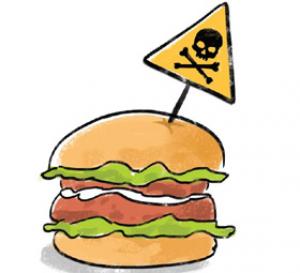
As usual, I woke up in the morning thinking about what I would do that day. It wasn't a special day, my routine was all planned-up like other days. It was a holiday, I didn’t have to go to school. I was determined to do something new, see something different. I was thinking about going with my family to watch a movie or something like that. I don’t watch movies often but my exams had just ended the day before. Many ideas came to my mind, but that day I don’t know why...

We often hear that health is wealth. But how well is it understood and applied is difficult to ascertain. This time, we bring to you a story on a nutritional study undertaken by our five GSP (Green Schools Programme) Gold schools, for assessing their students’ health. A few students in the age group of 12–15 volunteered from each school to participate in the study...

The food we eat comes from various sources, among them, plants are the largest group of souces and our primary food producers. Can you think of the food items we get from plants?

This year (2016), there has been a renewed focus on children’s health. The WHO has launched a global strategy on health for women, children and adolescents. New challenges keep cropping up as increase in travel and people-to-people contact creates a globalization of microbes. Degrading environment has its own set of problems.

What was 2016 like for children and young adults? From a global report to a national plan, from events like the US elections to the Olympics, we examine the year with a lens of a young person...

A group of students have come together to address their water worries The aqueducts connecting the roof to the ground have been aesthetically designed as a part of the building through tiled wall depressions rather than pipes. The rainwater collected from the roof directly recharges the percolation pits. Even inside the building, there are open courtyards with steps for the water to move down and recharge the groundwater. Our sole aim as of now is to recharge the groundwater aquifer, which is a problem in a city like Gurugram, which suffers from alarming drop in groundwater levels. It is due to this, that we are privileged to …

For those of you who often end up at fast-food restaurants in search of a bite, here is an eye-opener. According to global estimates, by 2025 some 268 million children aged 5 to 17 years may become overweight, including 91 million obese. Obesity-linked diseases are projected to increase sharply too; in 2025, up to 12 million children are likely to suffer from impaired glucose tolerance, 4 million will have type 2 diabetes, 27 million will have hypertension and 38 million will have fatty liver. Does this forecast sound alarm bells, kids?

